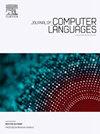MTable: Visual query interface for browsing and navigation in NoSQL data stores
IF 1.8
3区 计算机科学
Q3 COMPUTER SCIENCE, SOFTWARE ENGINEERING
引用次数: 0
Abstract
Almost all human endeavors in the era of the digital revolution, from commercial and industrial processes to scientific and medical research, depend on the use of ever-increasing amounts of data. However, this humungous data and its complexity make data exploration and querying challenging even for experts. This led to the demand for easy access to data, even for naive users, all the more evident. Considering this, the database community has tilted toward NoSQL Data stores. While there has been much study on query formulation assistance for NoSQL data stores, many users still want help when specifying complex queries (such as aggregation pipeline queries), which require an in-depth understanding of the data storage architecture of a specific NoSQL data store. To help users perform interactive browsing and navigation in NoSQL data stores (MongoDB), this paper proposes a novel, simple, and user-friendly interface, MTable, that provides users with a presentation-level interactive view. This view compactly presents the query results from multiple embedded documents within a single tabular format compared to MongoDB's find operation, which always returns the main document. A certain cell of the MTable contains clickable hyperlinks for users to interact directly with the data persisted in the document stores. This helps the users to incrementally construct complex queries and navigate the document stores without worrying about the tedious task of writing complex queries. In a user study, participants performed various querying tasks faster with MTable than with the traditional querying mechanism. MTable has received positive subjective feedback as well.
MTable:可视化查询界面,用于浏览和导航NoSQL数据存储
在数字革命时代,从商业和工业流程到科学和医学研究,几乎所有人类活动都依赖于使用不断增加的数据量。然而,如此庞大的数据及其复杂性使得数据探索和查询即使对专家来说也是具有挑战性的。这导致了对易于访问数据的需求,即使对于幼稚的用户来说也是如此,这一点更加明显。考虑到这一点,数据库社区倾向于NoSQL数据存储。虽然对NoSQL数据存储的查询公式辅助已经有了很多研究,但是许多用户在指定复杂查询(如聚合管道查询)时仍然需要帮助,这需要对特定NoSQL数据存储的数据存储架构有深入的了解。为了帮助用户在NoSQL数据存储(MongoDB)中进行交互式浏览和导航,本文提出了一个新颖、简单、用户友好的界面MTable,它为用户提供了一个表示级的交互式视图。与MongoDB的find操作(总是返回主文档)相比,该视图以单一表格格式紧凑地呈现来自多个嵌入文档的查询结果。MTable的某个单元格包含可单击的超链接,供用户直接与保存在文档存储中的数据交互。这有助于用户增量地构造复杂查询和浏览文档存储,而不必担心编写复杂查询的繁琐任务。在用户研究中,参与者使用MTable比使用传统查询机制更快地执行各种查询任务。MTable也收到了积极的主观反馈。
本文章由计算机程序翻译,如有差异,请以英文原文为准。
求助全文
约1分钟内获得全文
求助全文
来源期刊

Journal of Computer Languages
Computer Science-Computer Networks and Communications
CiteScore
5.00
自引率
13.60%
发文量
36
 求助内容:
求助内容: 应助结果提醒方式:
应助结果提醒方式:


